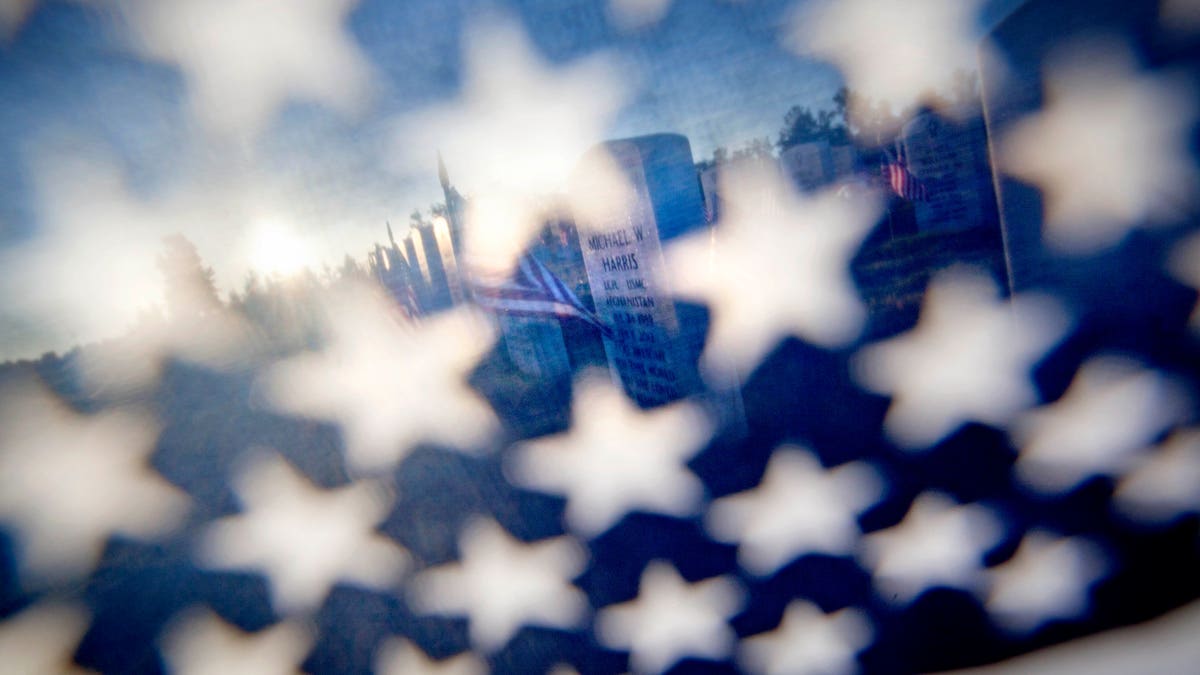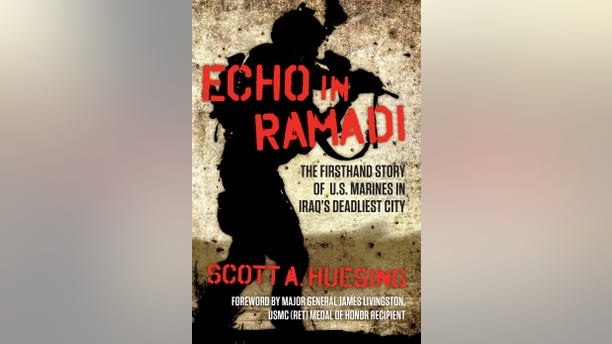
The grave of U.S. Marine Lance Cpl. Michael Harris is seen through an American flag as the the sun rises over Georgia National Cemetery Monday, May 28, 2012, in Canton, Ga. Harris died Feb. 6, 2012, in North Carolina. (AP Photo/David Goldman) (AP2012)
Many Americans know what it’s like to be the parent of a U.S. Marine. Some know what it’s like to send their sons and daughters off to war to fight in the deadliest places on Earth. Others have dealt with their children who struggle with the gripping effects of post-traumatic stress (PTS).
But to be a parent who has endured all of this and then become the mother of a son who takes his own life is to belong to an even smaller group.
NICKI: I am Simon’s mom. That’s how I start every morning and end each night – being Simon’s mom. I lost Simon to suicide on November 2, 2015. He was a Marine – a proud, “Magnificent Bastard” of 2d Battalion, 4th Marines who served his country from 2004 to 2007 in the most dangerous place on Earth – Ramadi, Iraq.
It is staggering to think that there are over 6,800 names etched into stone on the memorials for those our nation has lost during the Long War on Terror.
Sadly, some are not memorialized in granite. This includes those who died, and continue to die, long after they return home – committing suicide from the effects of PTS, still fighting an unimaginable battle – a number in the thousands.
Try, for a moment, to picture many more of the granite columns if we recognized this loss. The sacrifice of these warriors. The struggles. The families who have no memorial for their sons and daughters, many who fought in combat.
Not all Marines who lose their lives are memorialized in granite.
Simon’s mom had no idea what joining the Marines meant when Simon signed up during his senior year of high school. She could never brace for the impact of what would hit her, nor grasp the extent of life-altering changes that would take place in the following years. Simon’s decision would affect the lives of all who knew him.
Simon always said his Marines were his brothers. Nicki attended Simon’s graduation from boot camp. Now addressed as ma’am and embraced by groups of thin kids with gaunt, clean-shaven faces, Nicki quickly got a crash-course in the philosophy of the Marines.
Those she met wore sharp uniforms and were forged into Marines over a 14-week period. These well-mannered kids had changed. They were men. But Simon was still her boy.
Simon deployed to Ramadi in 2004. Nicki came to the realization that there was nothing she could do to protect her son. Simon fought in the middle of the deadliest city in Iraq. There was no safeguarding him from the danger. He was surrounded by it – and lived for it.
Simon was proud to fight alongside his fellow Marines. In less than 24 months he was ordered back to Iraq. Back to Ramadi.
In 2006 the news from Ramadi was bad – blood was shed everywhere in the city. But Simon was with his brothers, and despite his mother’s anxiety, they both knew he was where he wanted to be.
When Simon came home from the war, his mom didn’t meet the men he fought alongside – his extended family of “Magnificent Bastards.” She didn’t meet any Gold Star families – but would later, through his tragic loss.
She would come to know people like: David and Jennie Sanchez, Gary and Donna Matus, Judd and Jeni Libby, Rita Jerabek and Dianne Layfield. These are the parents of the fallen Marines in Simon’s company.
Simon’s pain over losing his brothers became Nicki’s as well. Despite the loss, Nicki was supported by them all years later.
“Once a Marine, always a Marine” is not simply a slogan – it’s an eternal bond. The men who fought together understood each other’s pain, joy, fears and accomplishments like no other group could ever understand. They gave, and continue to give, unyielding support without fear of judgment. A bond between those who have lived through hell together can never be broken.
Even though the bond was born in hell, the connection is about love. It’s about joy just as much as it’s about sorrow; it means more responsibility. Simon’s mom understood that.
A memorial service for Simon was held two weeks after he committed suicide. The Marines gathered at his mother’s home the day before for support.
Nicki was stunned by the strength of the bond her son had made with these men that had lasted all the years after combat. They were all there for each other and for her – they were one big family. They ate chocolate chip cookies, drank beer, and the sound of their comradery rose to the roof.
Simon’s mom felt that when she walked into the living room to take a break from the noise, Simon was with her, laughing at his brothers. A heartwarming smile broke across her face.
In the wake of Nicki's loss, Simon’s friends and family went through his room that held his personal effects, souvenirs and childhood trinkets – trying to grasp one last, tiny piece of his life that meant something to them, to Simon and to Nicki.
Nicki kept some of the things. She thought the physical pieces would help her remember him. They didn’t. It was the people that helped her the most.
Simon’s mom is a true Marine mom. Even though Simon’s gone, she has been “adopted” by 200 more of her Marine “sons,” who are always welcome to claim a piece of her heart, a piece of her life and a piece of her love.
Nicki keeps up with Simon’s Marines and their shenanigans the same way she does with the rest of her family. Her arms and heart are open to the boys she watched become men, the men who fought and loved alongside her son, like no other group she has ever known.
Not all Marines who lose their lives are memorialized in granite. But they’re memorialized in the hearts of those who remember them – the families they fought for.
Simon’s Mom—Nicki (Litke) Peterson lives in Minnesota. She has a daughter and younger son, three grandchildren, a husband, and treasures them all. She continually supports 2d Battalion, 4th Marines and all of America’s veterans. She just sent her second son, a Cavalry Scout in the U.S. Army, off to his first deployment to Afghanistan.









































